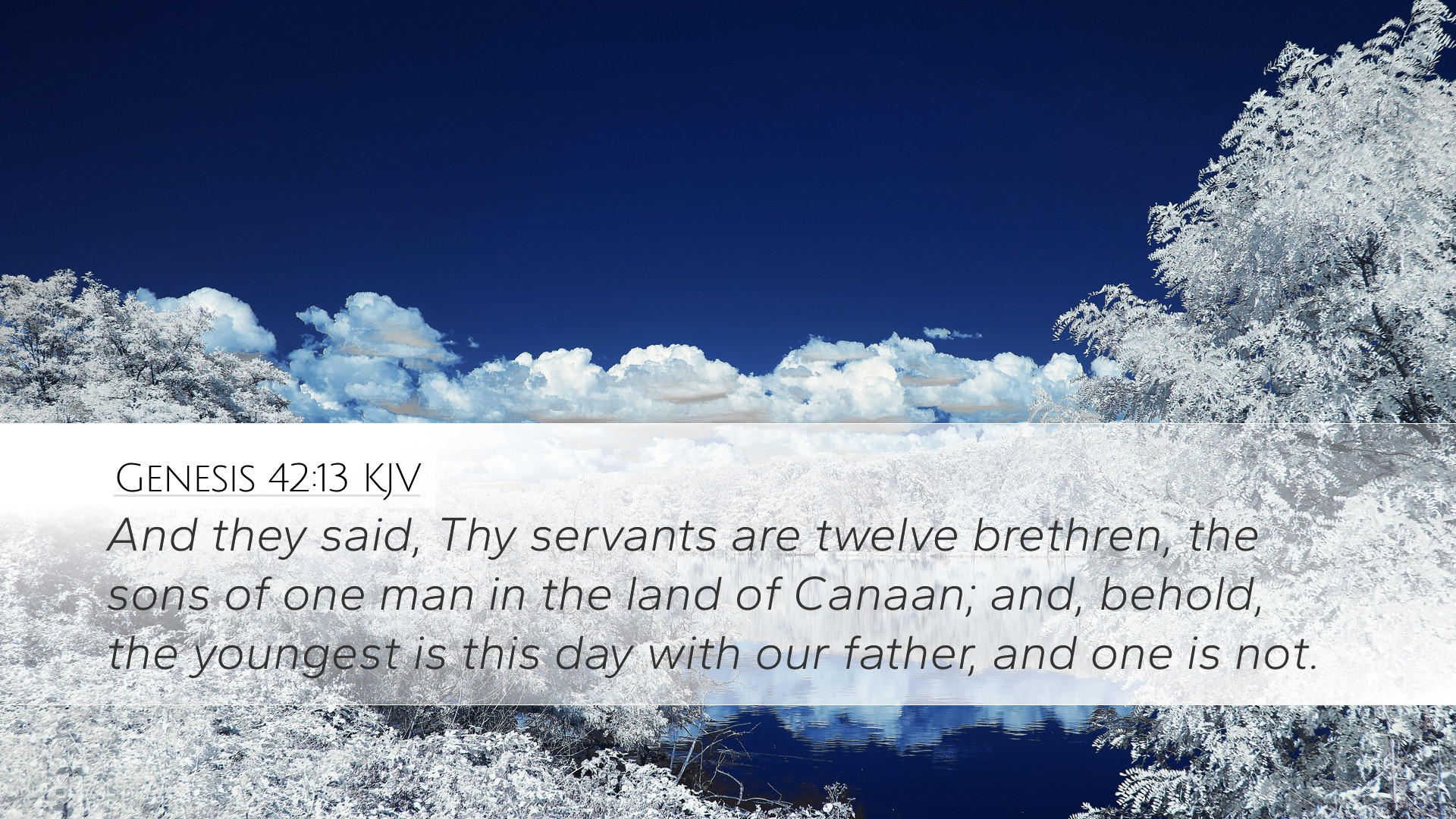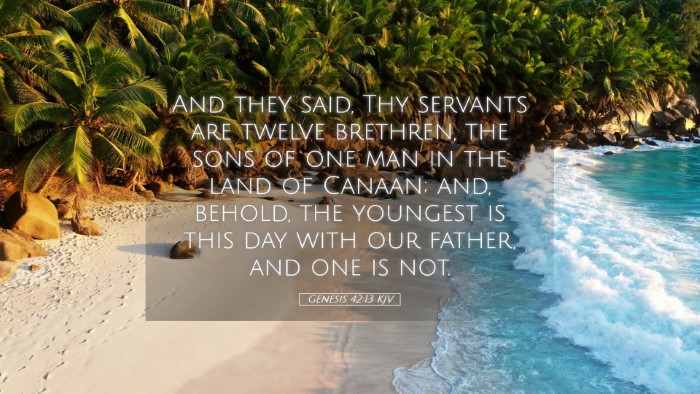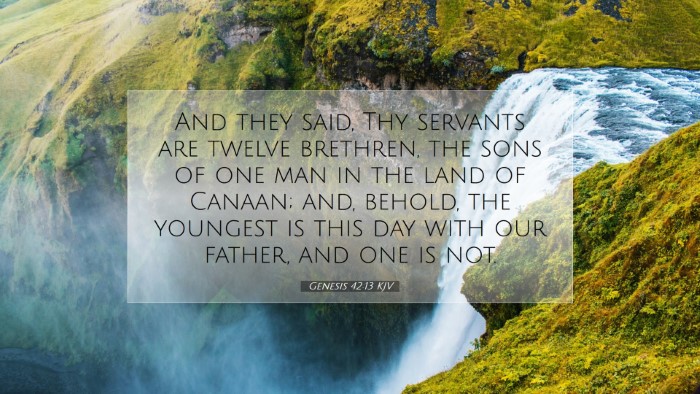Commentary on Genesis 42:13
Verse: "And they said, Thy servants are twelve brethren, the sons of one man in the land of Canaan; and, behold, the youngest is this day with our father, and one is not."
Contextual Overview
This verse occurs in the narrative of Joseph's brothers coming to Egypt to buy grain during a time of famine. Having sold Joseph into slavery and believing him to be dead, the brothers now face a dilemma as they stand before the very brother they wronged, who is now the governor of Egypt.
The brothers’ insistence on their identity as the sons of one man not only reflects their family unity but also the guilt and remorse they carry for their past actions against Joseph.
Theological Implications
Theologically, this passage illustrates the concept of divine providence. Joseph’s rise to power juxtaposed with the plight of his family highlights God's sovereignty in the course of history. It serves as a reminder that God can utilize past transgressions for a greater good, ultimately leading to reconciliation and redemption.
Insights from Matthew Henry
Matthew Henry provides a perceptive analysis of this verse. He highlights the psychological burden borne by the brothers as they present themselves to Joseph. They refer to their familial relationship, stating their numbers and situation in the context of the one who is "not" present, which serves as a poignant reminder of unresolved guilt.
Henry points out their future and most revealing statement: “the youngest is this day with our father.” This indicates a sense of urgency and desperation in their situation, evoking God's providence working through family dynamics and the necessity of honesty in their dealings.
Insights from Albert Barnes
Albert Barnes emphasizes the significance of the brothers’ declaration of their number. By stating they are twelve and including the reference to “one is not,” it denotes the profound grief that the brothers are experiencing. They are not only mourning Joseph’s presumed death but are also confronted with the consequences of their actions.
-
Familial Bonds: Barnes discusses how the brothers’ mention of their father reflects the weight of paternal duty and familial expectation, influencing their decisions and actions.
-
Self-Identification: The phrase underscores their self-identification as a family unit. Their integrity is implicitly questioned as they stand before the one who knows their true identity.
Insights from Adam Clarke
Adam Clarke offers a nuanced look at the emotional turmoil present in this passage. He notes the role of memory and conscience in the brothers’ experience, suggesting that their lives remain tainted by the tragedy of their actions against Joseph.
Clarke interprets "one is not" as not merely a factual statement but laden with regret. They realize that the choices they made have led to the current predicaments of their lives and have significantly altered the course of their family.
Pastoral Applications
For pastors and spiritual leaders, this passage serves as a powerful reminder of God’s redemptive work in the midst of human failure. The account of Joseph and his brothers offers various applications:
-
Encouragement of Confession: The emphasis on familial identity encourages believers to confront their past sins and seek reconciliation.
-
Divine Providence: believers can find solace in understanding God’s overarching plan even when they experience suffering due to their actions.
-
Community Understanding: The verse highlights the importance of community and familial relationships in understanding our identity in Christ and the need for grace in our dealings with one another.
Conclusion
Genesis 42:13 not only reveals the inner turmoil of the brothers but also showcases the larger theme of God's providence and mercy. In their moment of crisis, they are faced with the truth of their past, which speaks to the hearts of pastors, students, and theologians alike. Reflecting on this passage can lead to rich dialogues about guilt, redemption, and the ultimate restoration available through Jesus Christ.


